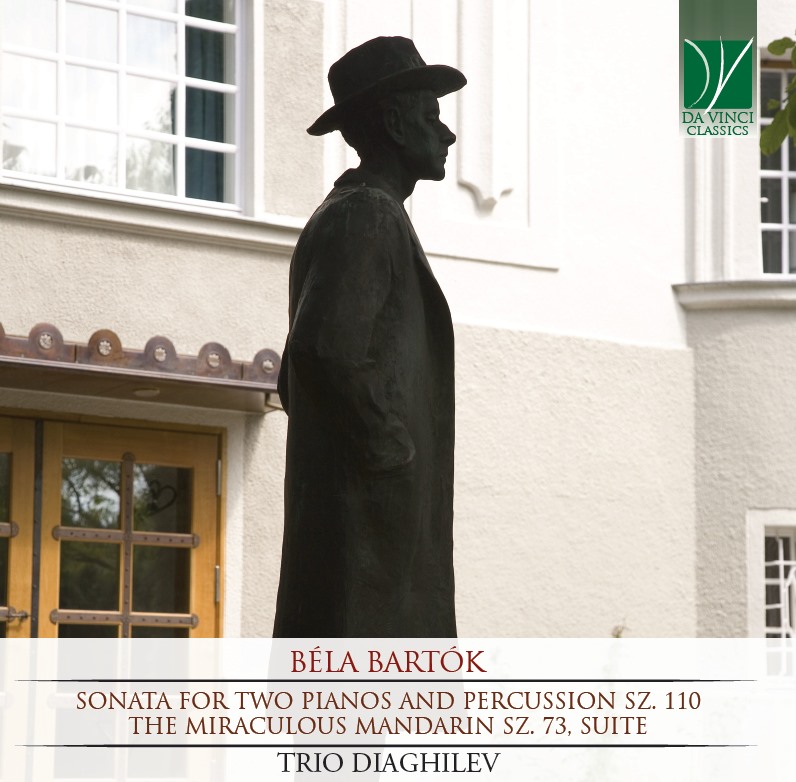 Bela Bartok: Sonate für zwei Klaviere und Schlagzeug + Der Wunderbare Mandarin (Suite, arr. von Trio Diaghilev); Trio Diaghilev (Mario Totaro, Daniela Ferrati, Klavier, Ivan Gambini, Schlagzeug); 1 CD Da Vinci Classics C00275; Aufnahme 1997, Veröffentlichung 07/2020 (43'37) - Rezension von Remy Franck
Bela Bartok: Sonate für zwei Klaviere und Schlagzeug + Der Wunderbare Mandarin (Suite, arr. von Trio Diaghilev); Trio Diaghilev (Mario Totaro, Daniela Ferrati, Klavier, Ivan Gambini, Schlagzeug); 1 CD Da Vinci Classics C00275; Aufnahme 1997, Veröffentlichung 07/2020 (43'37) - Rezension von Remy Franck
Bela Bartok komponierte seine Sonate für zwei Klaviere und Schlagzeug im Jahr 1937. Von diesem Opus und von der in eigenen Arrangement gespielten Suite aus Der Wunderbare Mandarin präsentiert das Trio Diaghilev ebenso ausdrucksstarke wie scharfsinnige Darbietungen, die das Wesen der Musik vollauf erfassen.
Die Sonate hat viel rhythmisch-dynamische Vitalität. Vor allem aber packt sie durch den perfekt gesteuerten atmosphärischen Verlauf von der langsamen, bedrohlichen Einleitung bis zum Finalsatz. Es ist ein drängendes, zwischen Spannung und Entspannung wechselndes Spiel, das mit ungewöhnlich starker Rhetorik fesselt.
Sehr spannend ist auch die hoch wirksame Suite aus dem Wunderbaren Mandarin, die nicht nur sehr gut gemacht ist, sondern auch die erzählerische Kraft der Musik suggestiv stärkt. Das Trio Diaghilev kann die hektischen, hoch virtuosen Teile ebenso brillant meistern wie es die langsameren mit manchmal bewegender Tristesse stimmungsvoll werden lässt. So wird der Sex and Crime-Charakter der Musik in nur drei Instrumenten effizient verdichtet.
Bela Bartok composed his Sonata for two pianos and percussion in 1937, and from this opus and from the suite from The Miraculous Mandarin, performed in an own arrangement, the Trio Diaghilev presents performances that are as expressive as they are astute, in that way fully capturing the essence of the music.
The Sonata has a lot of rhythmic-dynamic vitality. Above all, however, the performance lives from a perfectly controlled atmospheric progression from the slow, threatening introduction to the final movement. Alternating between tension and moderation it captivates with an unusually strong rhetoric.
Very exciting is also the highly effective suite from the Wonderful Mandarin, which is not only very well done, but also suggestively strengthens the music’s narrative power. The Trio Diaghilev masters the hectic, highly virtuosic parts just as brilliantly as it makes the slower ones with sometimes moving tristesse atmospheric. Thus the sex and crime character of the music is efficiently condensed in only three instruments.




















